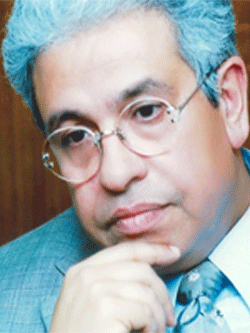Deciding the fate of the national press and media is linked to deciding the fate of the political system, and perhaps the future of Egypt, since it is linked to that critical question about what kind of Egypt do we want. If the answer is that we want a civic, democratic, modern and contemporary Egypt (that is also based on Islamic principles) then what needs to be done with the national press and media is obvious. The Shura Council should not own it nor should a governing body like the Supreme Press Council still exist.
Reforming the national press
By-Abdel Moneim Said
Opinion
00:04
Wednesday ,04 April 2012

Democratic countries, whether Islamic, Christian, Jewish, Buddhist or other, do not practice these methods in dealing with what they view as essentially a fundamental part of freedom of opinion, expression, as well as journalistic and media creativity.
That is one part of the picture; the other is the general financial and economic state of “national” press institutions. They suffer the same malaise of all public institutions because they are not managed based on their professional functions, but instead as a tool for the public good whose function is to lower unemployment and assist those who have no other resources.
Surprisingly, this occurred during a time when the profession of the press and media expanded on an unparalleled scale in Egypt, whereby cut-throat competition for the news, investigative and survey reporting is relentless. Meanwhile, print and broadcast reporters who had the talent, intellect and willingness to compete not only in Egypt but all over the Arab world were rewarded with salaries and benefits that were unprecedented for the profession. Despite much talk about the power of capital in the media, competition is so great that no one could direct or control the media, otherwise they would risk being ejected from the market altogether.
The problems of the press and media have evolved and require new examination befitting the type of Egypt we are aiming for. Competition should not destroy the profession, and perhaps “national” institutions should view it from this perspective once they are released from government control and become shareholding companies that incorporate various media tools.
It is no longer possible for the press alone or the broadcast media to compete under current media conditions in Egypt. I also believe that “public” media cannot be privatised by one investor, while there is an abundance of comprehensive media networks and private newspapers. Shareholding companies will raise the available capital and allow the staff to experience the capitalism rush, just as some of their colleagues had done before them.


